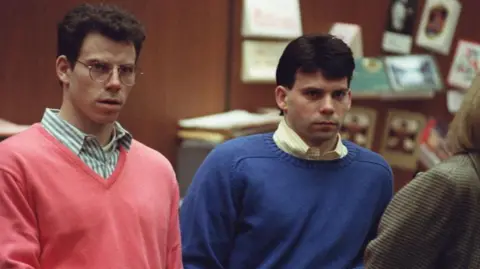The Menendez Brothers: Revisiting the Notorious Case and Their Fight for Freedom

The Menendez brothers appear in court during their resentencing hearing.
Introduction
Few crimes have gripped the American imagination quite like the case of the Menendez brothers. Lyle and Erik Menendez were thrust into the national spotlight in the early 1990s for the shocking murder of their wealthy parents in Beverly Hills. Over thirty years later, their quest for freedom has reignited debate and captured renewed attention through recent resentencing hearings. This article re-examines the case, the latest developments, and what lies ahead for the Menendez brothers.
The Original Crime and Media Frenzy
In August 1989, the Menendez brothers fatally shot their parents, José and Kitty Menendez, in their family mansion. The brutal nature of the killings, combined with the brothers' backgrounds and allegations of longstanding abuse, made international headlines. The trials, some of the first high-profile proceedings broadcast on television, exposed intimate family dynamics and divided public opinion (read more from BBC News).
Prosecutors argued that the murders were calculated and driven by greed, while the defense claimed years of emotional and sexual abuse motivated the crime. The first trial ended in a deadlock, but a retrial in 1996 found both brothers guilty of first-degree murder, sentencing them to life without parole. Many aspects of their abuse allegations were not presented in that second trial.
The Resentencing Hearing and Battle for Parole
Decades later, the Menendez brothers' situation has shifted. Changing perceptions around childhood trauma, ongoing legal advocacy, and their reportedly exemplary prison behavior have prompted calls for resentencing. In 2025, a long-awaited hearing began to determine if their life sentences should be reduced, possibly opening the door to parole.
The court has now heard arguments from both sides. Prosecutors maintain that the brothers have not shown true accountability and continue to deny responsibility, labeling abuse claims as fabricated. The defense highlights their rehabilitation behind bars, including college coursework and programs aiding disabled inmates (see details in this CNN article).
Judicial focus has shifted toward how much the brothers have changed and whether release is warranted. A judge considers not only past actions but also risk assessments and testimonial evidence from experts, family, and correctional officers. This resentencing hearing is not a new trial but an evaluation of their current state, including their 30-year prison record (learn about the process from NBC News).
Key Issues: Rehabilitation and Responsibility
A decision on resentencing hinges on two central issues: how the justice system measures rehabilitation for those convicted of violent crimes, and whether the Menendez brothers have truly acknowledged their actions. Critics point out that both brothers have at times reasserted their self-defense narrative, which prosecutors see as a lack of remorse. Supporters and some family members argue their decades-long rehabilitation demonstrates readiness for reintegration into society.
Judge Michael Jesic is tasked with weighing the brothers’ reported prison achievements against incidents like recent cell phone violations and confidential psychological assessments. California law now requires consideration of the age at which offenses were committed, particularly when offenders were under 26 years old—Lyle was 21 and Erik just 18 at the time of the murders.
What Happens Next for the Menendez Brothers?
Should the court decide in favor of resentencing, Lyle and Erik Menendez could become eligible for parole. Even if the current effort fails, the brothers have additional legal avenues: a petition for clemency and a habeas corpus claim based on new evidence. California's governor also holds the power to commute their sentences.
The case continues to provoke strong reactions across the country. Recent high-profile documentaries and dramas have kept the Menendez brothers in the public eye, reflecting ongoing interest in both justice and the potential for redemption.
Conclusion
The Menendez brothers' story is far from over. Their journey through the legal system highlights evolving attitudes toward crime, punishment, and rehabilitation. Whether or not their sentences are reduced, the debate surrounding their case challenges us to rethink how society deals with its most notorious crimes—and whether individuals can ever truly earn a second chance.
For updates and comprehensive background, explore the latest reports on the BBC, NBC News, and CNN.